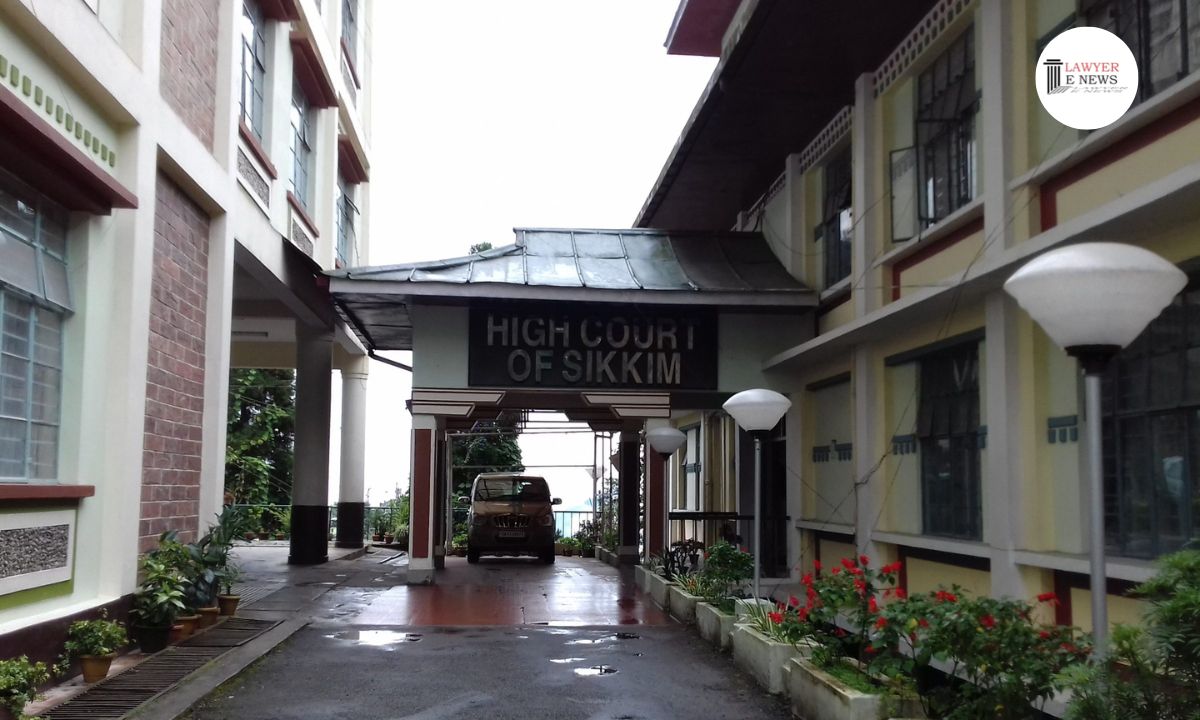-
by Admin
15 February 2026 5:35 AM



The High Court of Sikkim has overturned the acquittal of Suresh Pradhan, who was accused of sexually assaulting his two minor daughters. The judgment, delivered by a bench comprising Justices Meenakshi Madan Rai and Bhaskar Raj Pradhan, underscores the significance of consistent victim testimonies and the protective intent of the Protection of Children from Sexual Offences (POCSO) Act.
The case involved allegations of sexual assault by Suresh Pradhan on his minor daughters, aged about 16 and 14, spanning from 2011 to 2018/2019. The abuse was reported on August 26, 2020, by members of the Childline Sub-Centre after the victims sought help through the Childline Helpline. The trial court, however, acquitted Pradhan on November 16, 2022, citing insufficient evidence and inconsistencies in the victims’ statements.
The High Court critically re-evaluated the evidence, focusing on the consistent accounts provided by the victims in their statements under Section 164 Cr.P.C. and their court depositions. The court noted, “The crux of the case has been mentioned unequivocally, sans exacerbation and embellishments by both the victims in their Section 164 Cr.P.C. statements and depositions before the Court.”
Justice Meenakshi Madan Rai highlighted the consistency in the victims’ testimonies: “PW-1 categorically stated in her Section 164 Cr.P.C. statement that, since she was in Class II, the Respondent used to fondle her breasts, touch her vagina and sometimes place his genital on the side of her vaginal opening.”
Addressing the delay in lodging the FIR, the court acknowledged societal and psychological factors, especially in cases involving minors and sexual assault. Citing Supreme Court precedents, the judgment stated, “It has to be remembered that law has not fixed any time for lodging the FIR. Hence a delayed FIR is not illegal.”
The High Court found the trial court’s appreciation of evidence to be flawed and perverse. It disagreed with the trial court’s reliance on the accused’s strict parenting style and the victims’ failure to immediately report the abuse to their mother or brother. The judgment emphasized that different individuals react differently to trauma and fear, and these reactions should not discredit their testimonies.
The High Court extensively discussed the legal principles guiding interference in acquittal appeals. It highlighted the need for careful consideration of evidence, especially under the POCSO Act, which mandates a presumption of guilt unless proven otherwise.
The court observed, “There is absolutely no reason to conclude that their evidence was concocted or unbelievable.” It also stressed the legislative intent of the POCSO Act to provide stringent protection against sexual offences on children.
Justice Meenakshi Madan Rai remarked, “Merely depositing money in the account of the victims would not absolve or render the Respondent not guilty of the repulsive and reprehensible acts perpetrated by him.”
The High Court’s decision to set aside the acquittal and convict Suresh Pradhan under Section 354A(1)(i) and Section 506 of the IPC sends a strong message about the judiciary’s commitment to protecting victims of sexual offences. This judgment reinforces the importance of consistent victim testimonies and the need for a meticulous appreciation of evidence in such sensitive cases.
Date of Decision- July 8, 2024
State of Sikkim vs. Suresh Pradhan
[gview file="https://lawyerenews.com/wp-content/uploads/2024/07/SIKKIM-08-JULY-24-POCSO-CRIM.pdf"]
